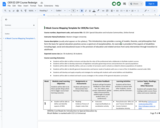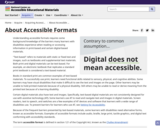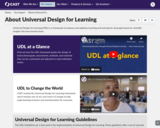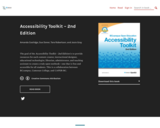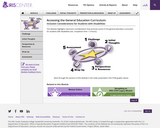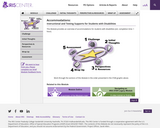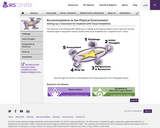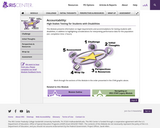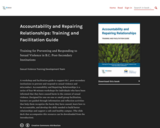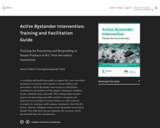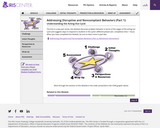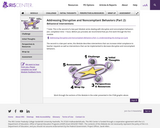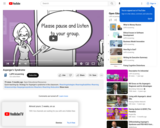A Resource for Instructors of All Levels, Backgrounds, and Teaching Contexts
Short Description:
Addressing Evolving Needs with Universal Design for Learning (UDL) is a resource that will guide instructors of all levels, backgrounds, and teaching contexts to reflect on the evolving needs of students, and to implement UDL principles to create more supportive, inclusive, and accessible learning environments for all. In addition to introducing key UDL concepts, this resource includes practical applications, tools, and discussion/reflection prompts for instructors of all levels. This resource can be used individually or in group contexts.
Long Description:
Addressing Evolving Needs with Universal Design for Learning is a resource that was created following the success of a cohort-based online practicum that was offered to faculty, instructors, and staff at Northwestern University. This resource is designed for instructors of all levels, backgrounds, and teaching contexts to reflect on the evolving needs of students and instructors, with an emphasis on mental health. Following the events of the past couple of years, explore how elements of course design can have varying impacts on students, and learn to implement Universal Design for Learning (UDL) principles to create more supportive, inclusive, and accessible learning environments for all.
This resource draws on expertise and experience from around the Northwestern University to explore practical ways to implement UDL solutions in syllabi, LMS pages, course materials, assignments and assessments, and learning experiences.
Word Count: 4549
(Note: This resource's metadata has been created automatically by reformatting and/or combining the information that the author initially provided as part of a bulk import process.)
